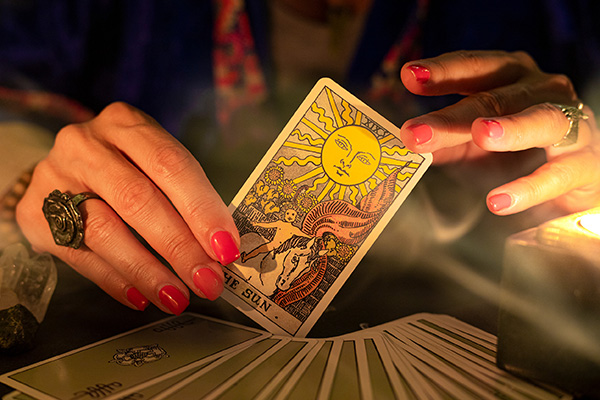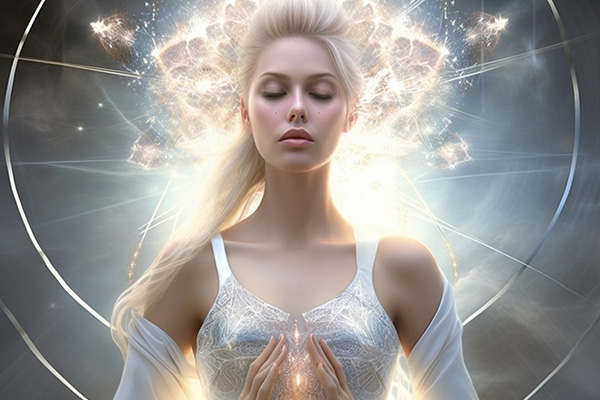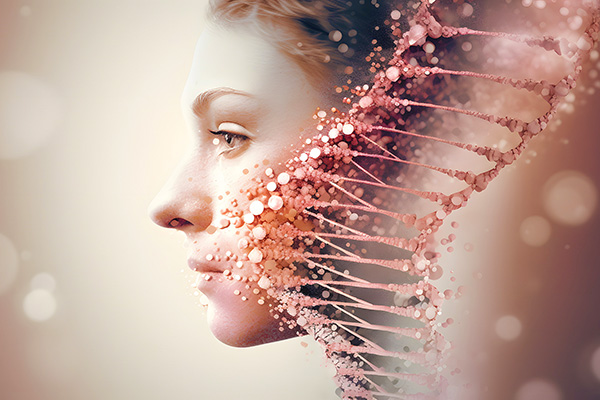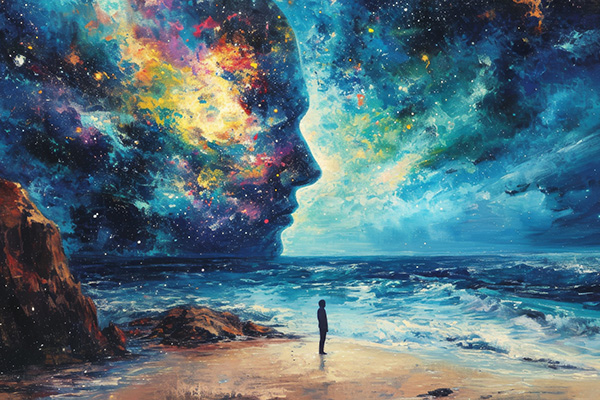intuitive awareness
A Spiritual Calling To Serve The Animals
 My psychic awakening began early, at the age of five. My first extrasensory experiences involved listening to animals and intuitively understanding their needs and concerns. Once I realized that I could communicate with the animals in this way, I began to listen more often to how I could help and support them.
My psychic awakening began early, at the age of five. My first extrasensory experiences involved listening to animals and intuitively understanding their needs and concerns. Once I realized that I could communicate with the animals in this way, I began to listen more often to how I could help and support them.
One day, I was playing outside when I sensed an animal calling to me for help. When I turned around, I saw a beagle at a neighbor’s house, shaking his head violently and whimpering. I could feel its distress.
As I approached, I immediately saw the cause of his discomfort. His ears were covered with parasites to the point that he was bleeding from repeated scratching.
Intuitively I instantly knew I had find an ointment, and with the simplicity of a child’s solution, I applied petroleum jelly to his ears. To my surprise and joy, it worked! Relieved, the beagle expressed immense gratitude, and tending to his ears became my daily mission.
My parents later adopted a retired German shepherd from the military. Because of his special training and many years of service, he was highly alert to things around him. His name was Argo, and I was told that he only understood formal commands, so it would be difficult for him to adjust to living as an ordinary “civilian” with our family.
Little did the adults know that I had my own way of talking to the animals. Soon I found myself sitting with Argo for hours, secretly communicating with him. He told me many amazing stories about his adventures as a military service dog. We became inseparable.
The Multi-Layered Magic Of The Tarot
 It’s no secret that the Tarot is my favorite divination tool. It is like a trusted assistant to me, always there to provide support and clarity, both in my professional work and in my own spiritual practice.
It’s no secret that the Tarot is my favorite divination tool. It is like a trusted assistant to me, always there to provide support and clarity, both in my professional work and in my own spiritual practice.
Do you know how sometimes you have a gut feeling about something, but you can’t quite put it your finger on it? Or how sometimes you have trouble remembering someone’s name, even though it’s on the tip of your tongue?
Well, that’s how the Tarot helps me when I read for people. It often helps me bridge everyday life with the esoteric and translate psychic messages in a more practical way.
The cards act as a metaphysical magnifying glass, sharpening my psychic impressions and intuitions into clear messages, guidance and predictions. Sometimes it is just a single symbolic element in a card that jumps out, demanding attention and holding the key to unlocking the essence of the message.
A single Tarot card can reveal a plethora of meanings and insights, each layer shaped by that particular reading. Tarot is deeply symbolic and fluid, allowing each card to be interpreted in myriad ways.
First, the context of the reading is important. Whether the question is about love, career, health, finances, or personal fulfillment, the meaning of a card can change significantly. For example, the Two of Cups could mean a romantic partnership in a relationship reading, but a harmonious business partnership in a career reading.
Second, the client’s state of mind and personal circumstances influence the interpretation of the card. Their experiences, desires, and fears color how the imagery and symbolism will be perceived by the psychic. The same Two of Cups might highlight existing trust issues for one person, while signifying a newfound connection for another.
A Premonition Dream Could Save Your Life!
 While meditating one afternoon and deep in the alpha state, I heard a clairaudient voice say to me: “You need to get to work because someone needs the message you were given last night.”
While meditating one afternoon and deep in the alpha state, I heard a clairaudient voice say to me: “You need to get to work because someone needs the message you were given last night.”
I wasn’t feeling very social that day and definitely not in the mood to work, but the voice was crystal clear and very insistent.
I mentally asked the voice to show or tell me how and what this message could be? Almost immediately I saw my dream journal in my mind’s eye.
So I stopped the meditation session and went to get my dream journal from my nightstand. I always keep it handy, along with a clip-on night light, so I can record my dreams at any time.
Over the years, I’ve trained myself to recall significant dreams and write down as much as I can remember.
Keeping a dream journal has become incredibly valuable to me personally and in my psychic work. Dreams act as a bridge between the material world and the spirit realm, offering profound insights and guidance.
One of the greatest benefits of dream journaling is the ability to track ‘warning dreams,’ also known as premonition or precognitive dreams. These dreams are forebodings of future events, alerting us to potential dangers, challenges, or negative events that we may soon encounter in waking life.
The Difference Between ‘Psychic’ And ‘Intuitive’
 The terms “psychic” and “intuitive” are often used interchangeably, but there is a fundamental difference between the two. Understanding this distinction can enhance one’s spiritual practice, deepen your self-awareness, and clarify the role these abilities play in navigating energy, conscious living and spiritual awareness.
The terms “psychic” and “intuitive” are often used interchangeably, but there is a fundamental difference between the two. Understanding this distinction can enhance one’s spiritual practice, deepen your self-awareness, and clarify the role these abilities play in navigating energy, conscious living and spiritual awareness.
The term “psychic” refers to the ability to access information through a special non-physical or spiritual system of perception, more often called the psychic senses or the clair senses. This ability allows a person with psychic ability to perceive or sense information without using the five physical senses. Psychic perception involves tuning into unseen frequencies and receiving impressions that are inaccessible to the five ordinary senses.
Psychic perception therefore involves reaching outward to access information from external sources. This can include tuning into other people’s energies, telepathy, communicating with the spirit realm, exploring the Akashic Records, or channeling from the universal consciousness.
The term “intuitive” refers to a the ability to access information within. Intuitive perception involves connecting with your higher self or soul essence, tapping into the innate wisdom, guidance and truth that resides within you. Unlike the psychic process of acquiring information, intuition is less about “getting” and more about already “having”-a natural inner knowing or awareness that arises effortlessly.
The Past Life Memories Embedded In Your Cells
 Have you ever met someone and had the feeling that you had met them before, or that they were somehow a kindred spirit?
Have you ever met someone and had the feeling that you had met them before, or that they were somehow a kindred spirit?
Have you ever tried unfamiliar foods that suddenly seemed very familiar or evoked feelings of nostalgia? Places that seemed very familiar even though you had never been there before?
Have you ever smelled a vaguely familiar scent that made you feel a certain way, or took you back to a distant time or place, not in this lifetime, but somewhere, sometime, long, long ago?
These experiences are more than coincidences. They are manifestations of your cellular memories.
The human body is made up of billions of cells that communicate with each other. Each of these cells is a living, breathing, feeling organism and carries energy imprints of all our memories and experiences in our current life as well as our past lives.
Every memory and experience from every life we have ever lived is recorded and stored in the Akashic Records – the cosmic library where the history of every soul’s journey is archived. It is a complete history of everything you have ever said, thought, felt and done throughout your soul’s entire growth journey.
This cosmic collection of past life memories and experiences is embedded in the cellular memory of your new physical body when you are reborn. The cells of your current body therefore carry many energy imprints, not only of your ancestral genetics, but also of your past life memories and experiences, and they affect your life, health and well-being on a daily basis, including your relationships.
The Mystical Purpose Of Daydreaming
 In school, I was often reprimanded for daydreaming. My eyes would glaze over as I gazed into the distance, lost in a magical world of my own.
In school, I was often reprimanded for daydreaming. My eyes would glaze over as I gazed into the distance, lost in a magical world of my own.
It amused the other children in the class and clearly frustrated my teachers, who mistook it for inattention or laziness, but even then I intuitively knew there was something valuable in my moments of mental wandering.
Little did I know that my frequent daydreaming opened doors not only to creativity and problem-solving, but also to spiritual connection, higher consciousness, and most importantly, manifestation.
Research has shown that daydreamers actually experience increased brain activity. Contrary to the common misconception that daydreaming equals a blank or stagnant mind, studies show that when we allow our minds to wander, we engage the problem-solving and creative areas of the brain.
Neurologically speaking, daydreaming activates the default mode network (DMN), a system in the brain that lights up when we are not focused on external tasks. The DMN connects us to deeper thoughts, memories, and emotions, often leading to sudden insights or realizations.
But what science describes as a purely neurological phenomenon is, in spirituality and metaphysics, a gateway to the higher self and beyond. When the mind wanders aimlessly, we enter an intermediate mental space — a threshold between the conscious and the subconscious. This is where creativity, intuition, psychic impressions, and spiritual connection are most accessible while awake.
What It Means To Align With Your Higher Self
 The term “higher self” is a term often used in spirituality, metaphysics, and psychic work, but it can be very confusing. What exactly is it? Is it our subconscious, our conscience, our alter ego, our soul, our spirit?
The term “higher self” is a term often used in spirituality, metaphysics, and psychic work, but it can be very confusing. What exactly is it? Is it our subconscious, our conscience, our alter ego, our soul, our spirit?
While these aspects are all related in some way to the higher self, it’s best understood as the most enlightened and transcendent part of our being.
Our soul or spirit is the conscious, evolving part of us in this lifetime, while the higher self is our soul’s highest potential. It is our divine blueprint and our eternal spiritual essence that exists beyond our physical self in the non-physical. It’s the timeless, eternal part of us that embodies the divine essence of who we are.
While the incarnated aspect of soul is the conscious experiencer throughout our lifetime, the higher self is the permanent aspect of the soul that exists in the higher realms.
The higher self is not a separate personality or individual being, but a deeply integrated, higher foundation of our soul. It is like a spiritual archive of all the wisdom, experiences and lessons accumulated from our past lives, as well as our soul contracts and higher purpose for this lifetime, serving as a blueprint for our soul’s evolution and life journey. It reflects the highest aspects of our being.
When we connect with our higher self, we align with this elevated aspect of who we truly are and what we intend to accomplish in this life and the next. This connection gives us clarity and insight into our soul’s path. It allows us to see life from a higher perspective and guides us to make choices that promote personal and spiritual growth. Connecting with the higher self helps us navigate life’s challenges with greater ease and purpose, allowing our soul to evolve and expand.